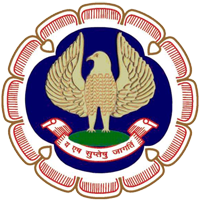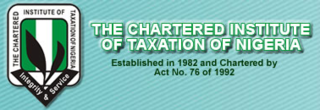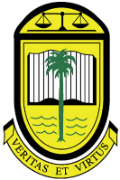Related Research Articles
The International Accounting Standards Committee (IASC) was founded in June 1973 in London at the initiative of Sir Henry Benson, former president of the Institute of Chartered Accountants in England and Wales. The IASC was created by national accountancy bodies from a number of countries with a view to harmonizing the international diversity of company reporting practices. Between its founding in 1973 and its dissolution in 2001, it developed a set of International Accounting Standards (IAS) that gradually acquired a degree of acceptance in countries around the world. Although the IASC came to include some organizations representing preparers and users of financial statements, it largely remained an initiative of the accountancy profession. On 1 April 2001, it was replaced by the International Accounting Standards Board (IASB), an independent standard-setting body. The IASB adopted the extant corpus of IAS which it continued to develop as International Financial Reporting Standards.

Chartered accountants were the first accountants to form a professional accounting body, initially established in Scotland in 1854. The Edinburgh Society of Accountants (1854), the Glasgow Institute of Accountants and Actuaries (1854) and the Aberdeen Society of Accountants (1867) were each granted a royal charter almost from their inception. The title is an internationally recognised professional designation; the certified public accountant designation is generally equivalent to it. Women were able to become chartered accountants only following the Sex Disqualification (Removal) Act 1919 after which, in 1920, Mary Harris Smith was recognised by the Institute of Chartered Accountants in England and Wales and became the first woman chartered accountant in the world.

Founded in 1904, the Association of Chartered Certified Accountants (ACCA) is the global professional accounting body offering the Chartered Certified Accountant qualification (ACCA). It has 240,952 members and 541,930 future members worldwide. ACCA's headquarters are in London with principal administrative office in Glasgow. ACCA works through a network of over 110 offices and centres in 51 countries - with 346 Approved Learning Partners (ALP) and more than 7,600 Approved Employers worldwide, who provide employee development.

The South African Institute of Chartered Accountants (SAICA), South Africa’s pre-eminent accountancy body, is widely recognised as one of the world’s leading accounting institutes. The institute provides a wide range of support services to more than 48,000 members and associates who are chartered accountants (CAs(SA)), as well as associate general accountants (AGAs(SA)) and accounting technicians (ATs(SA)).

The Institute of Chartered Accountants of Nepal (ICAN) was established under a special act, The Nepal Chartered Accountants Act, 1997 to enhance social recognition and faith of people at large in the accounting profession by raising public awareness towards the importance of accounting profession as well as towards economic and social responsibility of the accountants, and to contribute towards economic development of the country. The Institute is an autonomous body and the Council is fully authorized by the Act to undertake accountancy profession in Nepal.

The Institute of Chartered Accountants of India, abbreviated as ICAI, is India's largest professional accounting body under the administrative control of Ministry of Corporate Affairs, Government of India. It was established on 1 July 1949 as a statutory body under the Chartered Accountants Act, 1949 enacted by the Parliament for promotion, development and regulation of the profession of Chartered Accountancy in India.

Chartered Accountants Ireland was established by Royal Charter on 14 May 1888, and is Ireland's largest accountancy body. According to its website, it represents over 30,000 members globally.
The International Accounting Education Standards Board (IAESB) was an independent organisation within the fold of the International Federation of Accountants (IFAC). The board developed guidance to improve standards of education in accountancy. It ended its term of service in 2019.

The Institute of Chartered Accountants of Nigeria (ICAN) is a professional accountancy body in Nigeria. It is one of the two professional accountancy associations with regulatory authority in Nigeria, the other being the Association of National Accountants of Nigeria (ANAN). The relationship between the two organizations has been tense. In 2007 ICAN attempted to have a bill declaring ANAN void.

The Institute of Chartered Accountants of Pakistan is a professional accountancy body in Pakistan. It has over 10,000 members working locally and globally. The institute was established on July 1, 1961 to regulate the profession of accountancy in Pakistan. It is a statutory autonomous body established under the Chartered Accountants Ordinance, 1961. With the significant growth in the profession, the CA Ordinance and By-Laws were revised in 1983.
The Association of International Accountants (AIA) is a professional accountancy body. It was founded in the UK in 1928 and since that date has promoted the concept of ‘international accounting’ to create a global network of accountants in over 85 countries worldwide.

The Chartered Institute of Taxation of Nigeria (CITN) is a professional organization in Nigeria whose members are certified as qualified tax practitioners or administrators.
The Financial Reporting Council (FRC) of Nigeria, formerly the Nigerian Accounting Standards Board (NASB), is an organization charged with setting accounting standards in Nigeria. On Thursday, 6 May 2021, Shuaibu Adamu Ahmed was inaugurated by the Minister of Industry, Trade and Investment, Adeniyi Adebayo, as the Executive Secretary/Chief Executive Officer of FRC.
The Association of Accountancy Bodies in West Africa (ABWA) is a regional organization of the International Federation of Accountants (IFAC). As of 2011 there were ten West African accounting institutes represented in ABWA.
The Nigerian Accounting Association (NAA) is a member driven association of academics in the accountancy profession. It is the successor to the defunct Nigerian Association of Accounting Teachers (NATA). NATA was established in 1972 with the objective of "contributing through research and education, to the improvement of accounting profession and accounting education in Nigeria". The NAA is an academic society aimed at advancement of the accounting discipline and accounting profession in Nigeria. Members are usually members of the Association of National Accountants of Nigeria (ANAN) and/or the Institute of Chartered Accountants of Nigeria (ICAN).
The Liberian Institute of Certified Public Accountants (LICPA) is a professional association of accountants in Liberia.

The Institute of Chartered Accountants of the Caribbean (ICAC) is an association of accounting organizations in the Caribbean region that promotes professionalism and standards of best practice in the region.
CPA Ireland, formerly the Institute of Certified Public Accountants in Ireland, is one of the main Irish accountancy bodies, with 5,000 members and students.
The Chartered Institute of Cost and Management Accountants (CICMA) is a Nigerian-based professional accounting body offering accounting education and professional qualifications in cost and management accountancy and related subjects, focus on accounting, business and government operations. The head office of the institute is in Kaduna. The institute also has regional offices at Abuja, Kano, Jos and Port Harcourt. As at September 2015, it had 8,200 members working in and outside Nigeria. It also has 4,500 registered students.
References
- ↑ Yushau Abdulhameed Shuaib. "MEMBERSHIP OF PROFESSIONAL BODIES". Archived from the original on 22 July 2011. Retrieved 30 May 2011.
- ↑ Barry Curnow, Jonathan Reuvid (2003). The International Guide to Management Consultancy: The Evolution, Practice and Structure of Management Consultancy Worldwide, Volume 1. Kogan Page Publishers. p. 441. ISBN 0-7494-4079-1.
- 1 2 "NIA STRENGTHENS INTERNATIONAL TIES WITH NIGERIAN ACCOUNTING BODY" (PDF). Institute of Public Accountants. 18 November 2010. Retrieved 30 May 2011.
- 1 2 3 4 "progress towards professionalism" (PDF). CIPFA. March 2011. Archived from the original (PDF) on 28 September 2011. Retrieved 5 June 2011.
- 1 2 "ANAN Mobilizes 16,000 Membership in 2010". Daily Champion . 18 May 2011. Retrieved 5 June 2011.
- ↑ "Member bodies". Nigerian Accounting Standards Board. Archived from the original on 28 September 2011. Retrieved 5 June 2011.
- ↑ "Institutional Members". IAAER. Archived from the original on 27 December 2011. Retrieved 4 June 2011.
- ↑ "Nigeria". XBRL Planet. Retrieved 4 June 2011.
- ↑ ANAN listed as Council member of ABWA [ permanent dead link ]
- ↑ "ANAN | ANAN Profile". Archived from the original on 15 February 2020. Retrieved 24 January 2020.
- ↑ ANAN is an Associate member of IFAC [ permanent dead link ]
- ↑ IHEANYI NWACHUKWU (19 May 2011). "ICAN, CITN agree to down divide". Business Day (Nigeria) . Archived from the original on 28 September 2011. Retrieved 30 May 2011.
- 1 2 3 Mike Odiakose (6 December 2009). "Senate and Politics of Accounting Bodies". Daily Champion . Retrieved 30 May 2011.
- ↑ Moses Ezulike (13 March 2006). "ANAN to Build Accountancy Village". Daily Champion . Retrieved 30 May 2011.
- ↑ Raymond Gukas (17 March 2011). "Anan Expresses Satisfaction With Foreign Students in NCA". Daily Champion. Retrieved 30 May 2011.
- ↑ Lee H. Radebaugh, ed. (2009). "Cosmos Accountancy Chronicle Vol 21" (PDF). Cosmos Accountancy Chronicle. 21 (1). Archived from the original (PDF) on 24 March 2012.
- ↑ Cheryl R. Lehman (2004). Re-Inventing Realities. Emerald Group Publishing. p. 23. ISBN 0-7623-1154-1.
- ↑ "ANAN's Appeal Against ICAN Suffers Setback". Daily Champion . 25 June 2002. Retrieved 30 May 2011.
- ↑ Mohammed Shosanya (23 November 2007). "ICAN Loses Bid to Void ANAN". Daily Trust. Retrieved 5 June 2011.
- ↑ Adelanwa Bamgboye (29 March 2009). "Anan Faults Ican on Audit Standards". Daily Trust. Retrieved 30 May 2011.
- ↑ Peter Egwuatu (28 June 2010). "NASB Clamours for Independent Regulation of Financial Reporting". Vanguard (Nigeria) . Retrieved 30 May 2011.
- ↑ Stanley Nkwazema (15 May 2008). "House Halts Proliferation of Accounting Bodies". ThisDay . Retrieved 30 May 2011.
- ↑ Mike Odiakose (11 March 2010). "Time For Senate to Revisit Bills on Accounting Bodies in Nigeria". Daily Independent. Retrieved 30 May 2011.
- ↑ "ANAN, ICAN fostering cordial relationship –Ojaide". The Punch . 2 May 2012. Archived from the original on 10 May 2012. Retrieved 2012-07-04.
- ↑ Peter Duru (22 August 2009). "ANAN President condemns sack of Bank CEOs". Vanguard (Nigeria) . Retrieved 30 May 2011.
- ↑ "Scandal Puts Customs Boss on the Brink". The Daily Independent (Lagos) . 9 September 2009. Retrieved 30 May 2011.
- ↑ Annete Oghenerhaboke (30 May 2010). "The Hunter Now the Hunted". Newswatch (Nigeria) . Retrieved 30 May 2011.
- ↑ Odidison Omankhanlen (18 October 2010). "National accounting models: Jonathan seeks accountants' support". Nigerian Tribune . Archived from the original on 29 March 2012. Retrieved 2011-05-30.
- ↑ UMAR MUHAMMED (26 May 2011). "Accounting body donates research centre to university". Next (Nigeria) . Archived from the original on 5 March 2016. Retrieved 2011-05-30.
- ↑ "First female auditor-general inaugurated as new ANAN president". Business Day. 3 May 2011. Archived from the original on 28 September 2011. Retrieved 2011-05-30.
- ↑ http://www.nigeriadailynews.com/...jonathan...to-the-national-conference.html%5B%5D